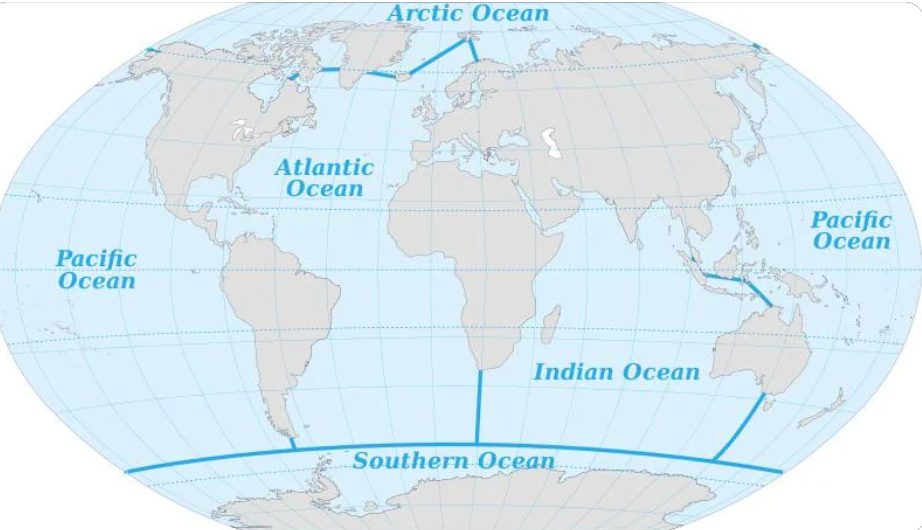December 1, 2023
The Iranian Navy has announced it plans to set up a permanent base in the Antarctic and also to deploy ships permanently in all five oceans of the world.

Even the United States does not maintain a permanent presence in all five oceans the Atlantic, Pacific, Indian, Arctic and Antarctic or Southern. It only maintains a permanent presence in three the Atlantic and Pacific, on which it borders, and the Indian, for which it has had a permanent base in Bahrain since 1948. The US doesn’t maintain a permanent presence in the Arctic, although Alaska borders that Ocean. Iran borders only on the Indian Ocean, the only one of the five in which it now maintains a permanent presence. Russia maintains a permanent presence in three the Atlantic, Pacific and Arctic, on all of which it borders.
Irani did not say what economic interests Iran has in the Atlantic, Pacific, Arctic and Antarctic Oceans to warrant it becoming the first country in history ever to maintain a permanent naval presence in all of them.
Irani also said of Iran’s new deployment plans, “If any mischief occurs, the Islamic Republic of Iran has enough capability to defend itself. Also, regional countries and people do not allow foreigners and non-regional actors to interfere and engage in mischief.” It wasn’t clear what that was supposed to mean.
It also isn’t clear how the Navy can maintain a permanent presence in five oceans since it only has 10 surface warfare ships of ocean-going size—seven frigates and three corvettes. And none of them is designed with the thick ice-crushing hulls needed for operation in the Arctic and Antarctic Oceans.
Three weeks earlier, Irani announced plans to build a permanent base in the Antarctic. “We have ownership over Antarctica and plan to raise Iran’s flag there and establish a permanent base,” he said September 28.
But no country owns any part of Antarctica. A 1959 international treaty recognizes the continent as belonging to all the world and bans any national ownership. Admiral Irani’s research thus appears deficient.
A total of 42 countries or about one-fifth of the world’s countries have research stations in the Antarctic. About half the stations are manned only in the summer months. Even North Korea operates a research station there in the summer. Most of the stations are on the coast of the continent; only the United States operates a station at the actual South Pole.
Admiral Irani said, “Our objectives encompass not only military operations, but also scientific work.” But the Antarctic Treaty specifically forbids “any measures of a military nature” on the continent.
As to what military plans Iran has for the Antarctic, Admiral Irani said, “Militarily, this area is the best location for controlling ballistic missiles and the enemy uses this area.” Military sources contacted by the Iran Times said this was nonsense. No ballistic missile is believed ever to have even passed over Antarctica.
As for ships capable of operating in the Arctic and Antarctica, Admiral Irani acknowledged that Iran would have to build icebreakers to be able to sail in those oceans. He gave no date for when the Navy would have icebreakers and able to sail to Antarctica and establish a base there. He also said nothing about the cost to Iran of building icebreakers, of setting up a permanent base in the Antarctic and of permanently deploying warships to all five oceans of the world. It would be costly and sounded to many like the prestige projects of the Shah that the revolutionaries pointed to as one justification for the 1979 revolution, accusing the Shah of wasting funds on projects of little value beyond prestige. Such projects named by the revolution included a Tehran Metro, an expressway through the Alborz mountains from Tehran to the Caspian, and nuclear reactors to generate electric power, all of which are projects the regime now touts as its own.
